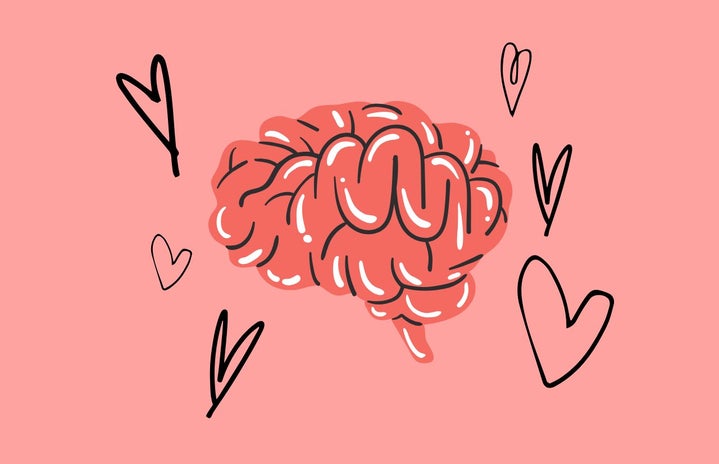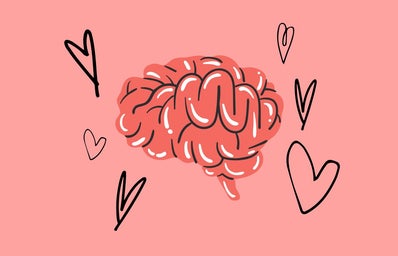Edited by: Tanmaya Ramprasad
The human brain is the only organ that enables humans to feel, store memories, be self-aware and is the mere organ responsible for love. Love itself is a peculiar thing; a behavioural motivator for all of mankind. So why are we so obsessed with love and why are we searching for it in others when the most perfect contender is right in front of us? That’s right, yourself! Self-love; the least sought out, but the most crucial.
In a study conducted in 2013, researchers found that 70% of the population of thoughts swarming in your brain are ones of self-criticism and feelings of inferiority.1 This is not a shocking statistic to most, self-criticism is an accidental by-product of evolution, enrooted in human beings. It is the taxing ability to reach self-discovery and error correction, leading to optimal chances of survival. However, the rhetoric in this is, too much self-criticism can result in self-loathing and depreciation–increasing depression and identity dysmorphia. Your brain is longing for some love, not solely from others but from yourself as well.
Who is this “self”?
Who is the “self” in the human brain? In reference to philosophical definitions, the “self” is defined by Hume as simply the constantly varying bundle of experiences and memories encapsulating our understanding of our being in the present and future standards2. Going to the bathroom and looking at yourself in the mirror, analyzing a selfie, post-shower analysis is a compilation of experiences all contributing to the consciousness of one’s self. This processing is regulated in the cortical midline structures of our brains– the medial prefrontal cortex, the precuneus/posterior cingulate cortex, the temporoparietal junction and the temporal pole. This process is facilitated by the right hemisphere, allowing us to identify ourselves from others.3
Neuroscience of Self Love:
So what exactly is the mechanism of self-love in the human brain?
Researchers propose that studies have shown that self-love activates the self-soothing system in the prefrontal cortex of the brain. Conversely, self-love also is hypothesized to deactivate the brain’s threat-system, which is located in the amygdala and thus mitigates feelings of insecurity and defensiveness.3
The mechanisms stated above are categorical of the oxytocin opiate- and arginine vasopressin system. This system is comprised of neurotransmitters and hormones of the hypothalamus coupled with social interaction. The sentiments of empathy–for others and yourself– sexual stimulation, nursing and stress showcase a corresponding activation stimulus.3
Currently, neurologists are working to depict a direct causal relationship between self-compassion and the two stated mechanisms. However, an establishment has been made in ape and mouse models. Self-compassionate behaviour has resulted in a subsequent increase in oxytocin and arginine vasopressin, and the inhibition of oxytocin-uptake.
Oxytocin–a hormone linked to opioid addiction– has been researched far more thoroughly than arginine vasopressin. Oxytocin has been reported to elucidate soothing effects and it is linked to the stimulation of the nucleus accumbens and the amygdala; both areas of the brain responsible for resulting dopamine and serotonin release. Serotonin and dopamine, both are “happy” hormones, responsible for uplifting mood and the reward centres in the brain. Thus loving yourself is truly a rewarding experience!4
Build Your own Happiness:
Drag Queen RuPaul preaches:
“If you can’t love yourself how the hell you gonna love somebody else? Can I get an amen?“
Self-compassion is the key to happiness. Finding your true self and embracing it takes time and a lot of patience, but it is rewarding! Remember that you are loveable and deserving of the very best. In authentic RuPaul fashion, self-love and compassion ‘shantay’ you stay, over-criticism and negative thoughts, ‘sashay’ away.
References
- Raghunathan , R. (n.d.). How negative is your “mental chatter”? Psychology Today. Retrieved October 17, 2021, from https://www.psychologytoday.com/us/blog/sapient-nature/201310/how-negative-is-your-mental-chatter.
- How to: Love yourself with neuroscience. THE BRAINSTORMS. (2021, February 3). Retrieved October 17, 2021, from https://thebrainstorms.io/how-to-love-your-self-with-neuroscience.
- Yenor, S. (2016). David Hume’s philosophy of common life. David Hume’s Humanity, 1–11. https://doi.org/10.1057/9781137539595_1
- Four happy hormones. Parkinson’s NSW | Parkinson’s NSW. (n.d.). Retrieved October 17, 2021, from https://www.parkinsonsnsw.org.au/four-happy-hormones.


